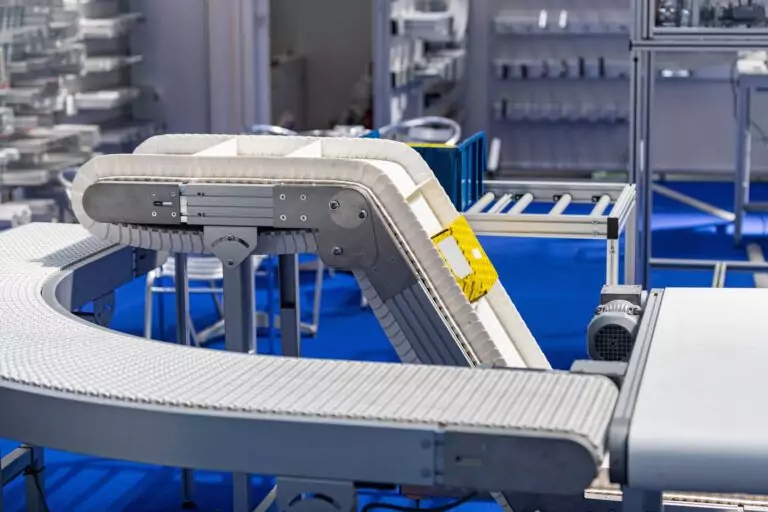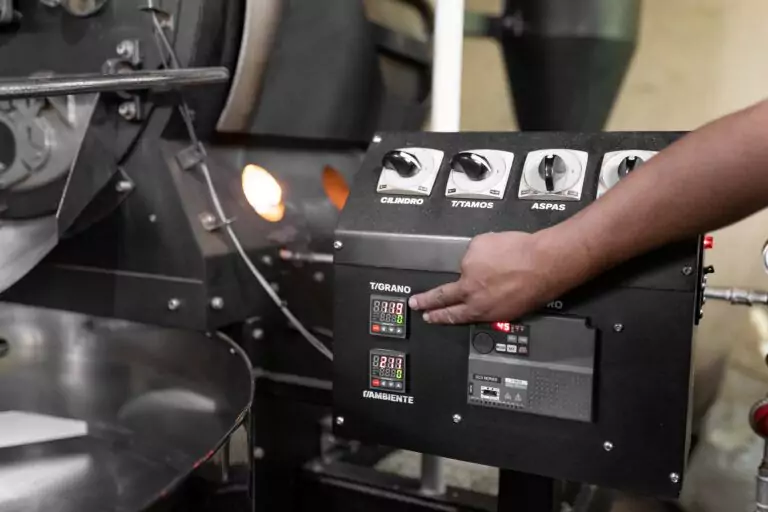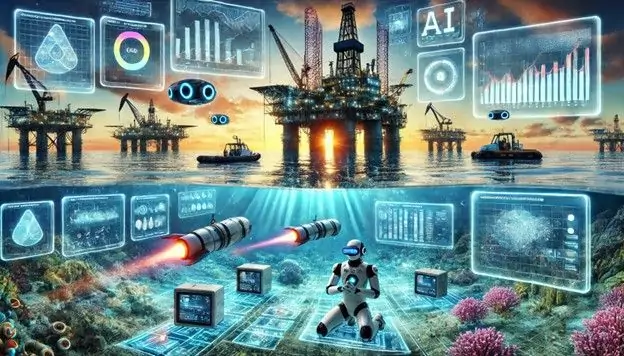There are many fields of engineering. In this article, we focus on the specialized work of six types of engineers and the type of work they do.
Table of Contents
- What Do Engineers Do?
- What Does It Take To Become a Professional Engineer?
- Six Specialized Types of Engineers
- What Is the Difference Between Common Types of Engineers and Special Types of Engineers?
- How Should I Choose Which Field of Engineering?
- How Many Different Types of Engineering Are There?
- Agricultural Engineer
- Architectural Engineer
- Automotive Engineer
- Biochemical Engineer
- Ceramic Engineer
- Computer Engineer
- Construction Engineer
- Electrical Engineer
- Environmental Engineer
- Geological Engineer
- Industrial Engineer
- Manufacturing Engineer
- Marine Engineer
- Materials Engineer
- Mining Engineer
- Nuclear Engineer
- Petroleum Engineer
- Software Engineer
- Multi-Discipline Engineering Services
What Do Engineers Do?
Engineers are professionals who research, design, build, test, sustain, and analyze materials, structures, and products. Their goal is to offer safe, functional, and economical solutions to technical problems.
In doing so, engineers must also balance safety, regulatory, and practicality limitations with functionality and cost requirements. An engineer’s job is to design and build practical and economic solutions using the principles of science and mathematics.
The work of an engineer bridges the gap between scientific discoveries and commercial applications by integrating engineering technologies with business solutions. In many cases, these breakthroughs improve the overall conditions for society. Engineers sometimes work alongside scientific researchers. This helps to collect data and important information used to design and build technical solutions.
What Does It Take To Become a Professional Engineer?
The basic qualification of an engineer is a four-year bachelor’s degree in engineering. This can vary depending on which kind of engineering discipline is pursued.
You can also take a master’s program that’s designed to deepen and expand the knowledge within an engineering discipline. It usually takes two years to get a master’s degree while a doctorate’s degree takes five to seven years. This would be for people who are interested in pursuing engineering research and education.
Usually, pursuing a career as a professional engineer requires a professional license to perform your duties legally. The license would specify your discipline. For example civil, industrial, chemical, electrical, or mechanical engineering.
Becoming a professional engineer requires extensive knowledge of the sciences and mathematics. Engineers must also possess creativity, resourcefulness, effective communication skills, and hands-on training.
Six Specialized Types of Engineers
Civil engineers
Civil engineering is considered the oldest engineering discipline. Civil engineers design, construct, and protect many kinds of environments. This includes infrastructure that is both natural and man-made, public and private, commercial and residential. Think of airports, hydroelectric dams, railways, a mountain pass, or even a building demolition.

Mechanical Engineers
Mechanical engineers design and manufacture machines, equipment, final products, and parts that influence the design of other products. Mechanical engineers are also expected to understand and incorporate the principles of force, energy, and motion into their designs. The goal of this branch of engineering is to create a system or process that works safely, efficiently, and affordably.
Production Engineers
Production engineers also work in the area of manufacturing. They specialize in using technology to improve the process of transforming raw materials into finished products.
Their responsibilities often include implementing automation and executing quality control measures in order to provide goods efficiently, safely, and reliably.
Production engineers fill a variety of titles, including:
- Assistant Production Engineer
- Production Design Engineer
- Production Manager
Chemical Engineers
Chemical engineering is an engineering field which deals with the study of the operation and design of such things as chemical or oil and gas plants as well as methods of improving production. Chemical engineers develop economical commercial processes to convert raw materials into useful products.
Chemical engineering uses principles of chemistry, physics, mathematics, biology, and economics to efficiently use, produce, design, transport and transform energy and materials.
Examples include:
- Pharmaceuticals
- Healthcare
- Energy Industry
- Safety industries
- Construction
- Petrochemicals
- Food processing
- Fertilizer technology
- Microelectronics
- Specialty chemicals
- Electronic and advanced materials
- Manufacturing
- Biotechnology and environmental health
Chemical engineering relies on the understanding of mathematics and chemistry to create products or processes, or to improve existing ones. Chemical engineers ensure that engineering processes are designed with the utmost safety while considering the social, environmental, and business needs.
Chemical engineers also focus on creating products from raw materials, as well as managing resources.
Biomedical Engineers
Sometimes called medical engineers, biomedical engineers study and design solutions to problems in biology and medicine. Their goal is to improve the effectiveness of patient care and the quality of human health.
Biomedical engineers design, install, adjust, analyze, and repair biomedical equipment. They also train medical personnel in the proper use of such equipment.

Aerospace Engineers
Also known as aeronautical engineers, aerospace engineers primarily design, build, and test aircraft and spacecraft. The systems they design for national defence include aeroplanes, helicopters, missiles, rockets, and even satellites.
Aerospace engineers must apply the fundamentals of structural analysis, fluid dynamics, propulsion, aerospace design, materials science, and automatic control and orientation. This is all part of creating and testing prototypes to ensure that designs will function as intended.
What Is the Difference Between Common Types of Engineers and Special Types of Engineers?
In broader terms, engineering fields are typically divided into four most common branches of engineering:
- Structural engineering
- Mechanical engineering
- Electrical engineering
- Chemical engineering
These four broad categories encompass a wide variety of engineering specializations. Most engineers work with one or more of these engineering disciplines.
For example, some aspects of civil engineering might also include structural and transportation engineering. There are materials engineers who specialize in working with ceramics, polymers, or metallurgical engineering. Also, consider demolition engineers which fall under the civil engineering category.
Because each of these engineering disciplines has different requirements and training, most professional societies today recognize these subdivisions. This makes it easier for aspiring engineers to focus on the particular field they find most interesting.

How Should I Choose Which Field of Engineering?
Studying engineering, whichever discipline you choose, is no light matter. We recommend assessing your current skill set and passions, are you already good at and what interests you the most?
Does computer science come easy to you? Maybe you could become a computer engineer and work on designing and developing large-scale computer systems.
Systems engineering is another broad area and could include mechanical systems.
Are you into sea life? Marine engineering can be your best choice!
Are you interested in mega projects? Then industrial engineering might be the field for you.
Are you keen to take things apart and put them back together? Do you like working on cars? Ever wonder how missiles and rockets can fly so fast or how to build an earthquake-proof bridge?
Engineers get to work on interesting and challenging projects.
So, start with discovering your passions and interests. It will help you to decide which field of engineering will bring the optimal balance of challenges and rewards.
Consulting with professional engineers could help determine which engineering field is right for you.
Of course, salary is an important factor too. Some types of engineers may make more than others in certain places or types of projects. A petroleum engineer working in the energy industry might make more than an environmental engineer working on municipal water treatment systems.
How Many Different Types of Engineering Are There?
To say there are only six types of engineers is misleading. There are many more disciplines and subdivisions of engineering. The six covered in this article are some of the most common.
There is one trait that we believe all engineers share. That is the desire to change the world with their skills. The state of technology and engineering we have today makes everything possible. With the right combination of knowledge, passion, skills, and determination, engineers will continue to deliver a better tomorrow and future.
When it comes to choosing a career path, narrowing it down to one kind can be a difficult yet enjoyable task. Here is a complete list of all of the different types of engineers in the job force today (in alphabetical order):
Agricultural Engineer
Agricultural engineers apply engineering principles to solve problems related to agriculture and farming. They design and develop equipment and systems for efficient crop production, irrigation, soil conservation, and animal farming. Agricultural engineers work closely with farmers, agricultural equipment manufacturers, and government agencies to improve agricultural practices and ensure sustainability.
Architectural Engineer
Architectural engineers bridge the gap between architecture and engineering, focusing on the structural integrity and functionality of buildings and structures. They collaborate with architects to design and analyze building systems, including HVAC, lighting, electrical, and plumbing systems. Architectural engineers work in architectural firms, engineering consulting companies, and construction companies.
Automotive Engineer
Automotive engineers are involved in the design, development, and improvement of vehicles and their components. They work on various aspects of automotive engineering, such as vehicle performance, safety, fuel efficiency, and emissions control. Automotive engineers may specialize in areas like powertrain systems, chassis, or electrical systems. They typically work in automotive manufacturing companies, research and development firms, and regulatory agencies.
Biochemical Engineer
Biochemical engineers apply principles of engineering and biology to develop processes and technologies related to biomolecules and biological systems. They work on projects such as developing biopharmaceuticals, designing bioreactors for fermentation processes, and optimizing biochemical processes for the production of biofuels or biochemicals. Biochemical engineers work in industries such as biotechnology, pharmaceuticals, food and beverage, and research and development.
Ceramic Engineer
Ceramic engineers specialize in the development and production of ceramic materials and products. They work on projects such as designing ceramic components for electronic devices, developing advanced ceramics for aerospace applications, and optimizing manufacturing processes for ceramic tiles or glassware. Ceramic engineers work in industries such as aerospace, electronics, energy, automotive, and materials manufacturing.
Computer Engineer
Computer engineers design and develop computer hardware and software systems. They work on projects such as designing computer chips, developing embedded systems, and creating computer networks. Computer engineers may specialize in areas such as computer architecture, software engineering, or network engineering. They work in industries like technology, telecommunications, computer manufacturing, and research and development.
Construction Engineer
Construction engineers are responsible for managing and overseeing construction projects. They work closely with architects, contractors, and construction workers to ensure projects are completed safely, on time, and within budget. Construction engineers are involved in project planning, cost estimation, scheduling, and quality control. They work in construction companies, engineering firms, and project management organizations.
Electrical Engineer
Electrical engineers specialize in the design, development, and testing of electrical systems and equipment. They work on projects such as designing power distribution systems, developing control systems for industrial processes, and creating electronic devices. Electrical engineers can specialize in areas such as power systems, electronics, or telecommunications. They work in industries such as power generation, manufacturing, telecommunications, and research and development.
Environmental Engineer
Environmental engineers focus on applying engineering principles to protect and improve the environment. They work on projects related to waste management, water treatment, air pollution control, and environmental sustainability. Environmental engineers collaborate with government agencies, consulting firms, and research institutions to develop solutions for environmental challenges. They work in industries such as environmental consulting, water and wastewater treatment, and government regulatory agencies.
Geological Engineer
Geological engineers apply geology and engineering principles to analyze and solve problems related to the Earth’s materials and structures. They work on projects such as assessing rock and soil stability for construction, designing geological hazard mitigation measures, and evaluating natural resource extraction sites. Geological engineers work in industries such as mining, construction, environmental consulting, and oil and gas exploration and production.
Industrial Engineer
Industrial engineers focus on optimizing complex systems, processes, and operations in various industries. They work on projects such as process improvement, production planning and control, supply chain management, and facility layout design. Industrial engineers utilize statistical analysis, computer modeling, and optimization techniques to increase efficiency, productivity, and cost-effectiveness. They work in industries such as manufacturing, logistics, healthcare, and consulting.
Manufacturing Engineer
A Manufacturing Engineer is responsible for designing, implementing, and optimizing manufacturing processes, systems, and equipment. They analyze production methods, identify areas for improvement, and create solutions to enhance efficiency, productivity, and quality. Common specialized tasks performed by Manufacturing Engineers include process design, layout planning, production line optimization, workflow analysis, and continuous improvement initiatives. They work in various industries such as automotive, aerospace, electronics, pharmaceuticals, consumer goods, and manufacturing plants. Manufacturing Engineers typically collaborate with cross-functional teams, including production managers, design engineers, quality engineers, and suppliers, to ensure smooth operations and meet production goals.
Marine Engineer
Marine Engineers are responsible for designing, building, and maintaining various marine vehicles and structures. They specialize in propulsion systems, power generation, navigation, and safety systems. Common specialized tasks include designing ship structures, developing marine propulsion systems, conducting maintenance and repairs, and ensuring compliance with safety and environmental regulations. They typically work in industries such as shipbuilding, offshore oil and gas, transportation, and naval architecture.
Materials Engineer
Materials Engineers focus on the development, processing, and testing of materials to meet specific requirements. They analyze the physical, chemical, and mechanical properties of materials and use this knowledge to design new materials or improve existing ones. Common specialized tasks include material selection, testing, and characterization, developing manufacturing processes, troubleshooting material-related issues, and evaluating material performance. They work in industries such as aerospace, automotive, electronics, construction, and research and development.
Mining Engineer
Mining Engineers are responsible for planning, designing, and managing mining operations. They assess the feasibility of mining projects, develop extraction plans, and ensure efficient and safe extraction of minerals. Common specialized tasks include designing and implementing mining methods, conducting geological surveys, managing drilling and blasting operations, optimizing production, and ensuring compliance with safety and environmental regulations. Mining Engineers work in industries such as mining companies, consulting firms, construction, and natural resource extraction.
Nuclear Engineer
Nuclear Engineers specialize in the design, development, and operation of nuclear power systems and radiation-related technologies. They work on the design and maintenance of nuclear reactors, radiation shielding, and nuclear waste management. Common specialized tasks include designing nuclear power plants, analyzing and optimizing reactor performance, conducting safety assessments, developing radiation protection measures, and managing nuclear waste disposal. Nuclear Engineers typically work in nuclear power companies, research institutions, government agencies, and consulting firms.
Petroleum Engineer
Petroleum Engineers focus on the exploration, extraction, and production of oil and gas resources. They design and analyze drilling and production methods, assess reservoirs, and maximize resource recovery. Common specialized tasks include designing drilling and production systems, conducting reservoir simulations, analyzing well performance, optimizing production techniques, and ensuring compliance with safety and environmental regulations. Petroleum Engineers work in industries such as oil and gas exploration and production companies, consulting firms, and research institutions.
Software Engineer
Software Engineers are involved in the design, development, and maintenance of software systems and applications. They specialize in programming languages, software architecture, and software development methodologies. Common specialized tasks include designing software systems, writing and testing code, debugging and troubleshooting software issues, and collaborating with cross-functional teams. Software Engineers work in various industries such as technology companies, software development firms, e-commerce, finance, and telecommunications.
Multi-Discipline Engineering Services
Vista Projects is an integrated engineering services firm that can assist you with your mechanical engineering requirements. With offices in Calgary, Alberta, Houston, Texas, and Muscat, Oman we help clients with customized system integration and engineering consulting across all core disciplines.
Civil Structural
Electrical
Instrumentation & Controls
Mechanical
Piping
Process









